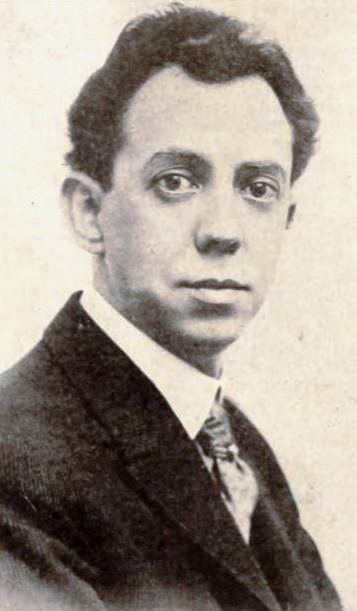Origine: The Meaning of a Liberal Education (1926), p. 27
Everett Dean Martin: Frasi in inglese
Origine: The Behavior of Crowds (1920), p. 7
Origine: Are We Victims of Propaganda, Our Invisible Masters: A Debate with Edward Bernays (1929), p. 144
Origine: Civilizing Ourselves: Intellectual Maturity in the Modern World (1932), p. xi, Foreword
“Every government, our own included, fights with propaganda as deadly as poison gas.”
Origine: The Meaning of a Liberal Education (1926), p. 45
Origine: Are We Victims of Propaganda, Our Invisible Masters: A Debate with Edward Bernays (1929), p. 142
Origine: The Meaning of a Liberal Education (1926), p. 88
Origine: Psychology and Its Use (1933), p. 23
Origine: Are We Victims of Propaganda, Our Invisible Masters: A Debate with Edward Bernays (1929), p. 142
Origine: Are We Victims of Propaganda, Our Invisible Masters: A Debate with Edward Bernays (1929), p. 144
Origine: The Meaning of a Liberal Education (1926), p. 183
Origine: The Meaning of a Liberal Education (1926), p. 46
Origine: Are We Victims of Propaganda, Our Invisible Masters: A Debate with Edward Bernays (1929), p. 142
Origine: The Meaning of a Liberal Education (1926), p. 181
Origine: Civilizing Ourselves: Intellectual Maturity in the Modern World (1932), p. xi, Foreword
Origine: The Meaning of a Liberal Education (1926), p. 42
Origine: Psychology: What it has to Teach You about Yourself and Your World (1924), p. 83
Origine: The Conflict of the Individual and the Mass in the Modern World (1932), p. 27
Origine: The Conflict of the Individual and the Mass in the Modern World (1932), p. 29
Origine: Are We Victims of Propaganda, Our Invisible Masters: A Debate with Edward Bernays (1929), p. 145
Origine: The Conflict of the Individual and the Mass in the Modern World (1932), p. 17
Origine: Are We Victims of Propaganda, Our Invisible Masters: A Debate with Edward Bernays (1929), p. 145
Preface p. viii
The Meaning of a Liberal Education (1926)
Origine: The Mystery of Religion (1924), pp. 52-53
Origine: The Conflict of the Individual and the Mass in the Modern World (1932), p. 5
“Whoever is concerned about his education should be on his guard against propaganda.”
Origine: The Meaning of a Liberal Education (1926), p. 45
“…prejudice and the well-known weaknesses of human nature are to be exploited and thus encouraged.”
Origine: Are We Victims of Propaganda, Our Invisible Masters: A Debate with Edward Bernays (1929), pp. 143-144
Preface p. viii
The Meaning of a Liberal Education (1926)
